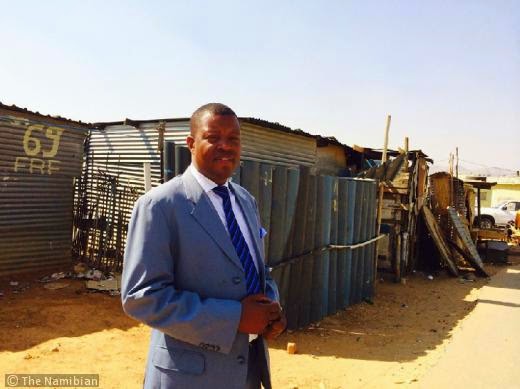Namibian education system language policy - 5 things that could go wrong
A month or two ago, or even three; time feels like it’s
moving slower these days. The Namibian Education Minister announced a radical
change in language policy, English would no longer be the medium of instruction
in the lower primary phase. This means that from grade 1 – 5 children in the
Namibian Education system will be taught in their mother tongue. I know what
you are thinking, you’re probably going, “Why not? Children should be taught in
their local languages.” Which is not necessarily a bad thing, research has
shown that mother tongue education improves language acquisition and learning
in general. However, no research has ever been done in Namibia to prove this.
As it stands, there is no empirical evidence to prove that mother tongue
education will work in Namibia. We seem to be copying South Africa who have a
similar policy in place, South Africa has also lowered pass requirements from
high school to improve results (not pointing fingers, I’m just saying). You’re
probably thinking, “What’s the big deal, kids in Europe are taught in their
mother tongues?” Well, that is true. However, most European countries have at
most four languages. The French teach in French, the Spanish in Spanish and the
Germans in German. Namibia has 13 local languages, or is it 11? All I know is
we have enough languages to field a soccer team. This change in policy might
just be a stroke of genius, I don’t like it and I am very critical of it. But,
you never know it might just work beautifully. However, it could also go
terribly wrong and fuck up the future for a whole generation. Below is a list
of five things that could go wrong with this policy.
1.
The implementation syndrome
Any Namibian will tell you, this country is not short of
ideas. Even though our government is always saying that we don’t have the
capacity to develop the nation. Namibia has no shortage of ideas, we have so
many graduates sitting at home unemployed that we could provide a labour force
for Swaziland and Lesotho. We have ideas, the problem has always been how those
ideas are put into practice. Implementation, a word that does not exist in the
Namibian government’s vocabulary. There is not one national project that has
not almost been fucked up, every national project in the last 10 years has been
hampered by glitches. TIPEEG, an economic stimulation and job creation project
has been so plagued by implementation glitches that it can probably be labelled
as the largest waste of money since the Oshakati-Omungulume road. A bitumen
surface road that had to be completely removed because it fell apart due to
shoddy work by the local contractors.
This language policy hasn’t even been piloted, never. At the
moment the biggest challenge seems to be the translation of teaching materials
into local languages and language choices in local schools. At present only
Afrikaans has teaching materials that are fully translated, will teachers be
able to teach without textbooks in local languages. At the same time, how will
the language selection work? Towns and cities are known as cultural melting
pots, so how does a school select a local language when every class has at
least 8 different ethnic origins? And won’t separating kids into classes
according to their language only succeed in separating children in an openly
tribal oriented nation? At the moment, all ethnicities in Namibia are forced to
interact in schools because English is the medium of instruction. How will
things be if kids from different ethnic backgrounds never interact? What about
kids whose parents would prefer them being taught in English. The
implementation horrors are so many that I start getting goose bumps thinking
about them.
2.
It’s still the same teachers
So the government thinks that because the teachers will be
teaching in their vernacular, the results will improve? If the same teachers
who were in the system when kids where failing whilst English is the medium of
instruction are still in the system when the change to local languages takes
place, will the results dramatically improve? There is a difference between
teaching Pythagoras theorem in a language and actually teaching Pythagoras
theorem. If you can’t fully explain what you are teaching then it doesn’t
matter which language you are teaching it in. The ministry of Education has
always shied away from investing in teachers and improving their capabilities,
most still struggle with computers. World class players being coached by a
useless coach will play like crap, which is obvious. The Ministry is so
concerned with improving results that most of the money goes to secondary phase
education when the real problem is at primary level. Unless the ministry puts
more money into training and improving the level of skills for primary school
teachers, the kids will still fail. This time they will fail in their mother
tongue.
3.
The other factors are still there
What are other factors? Poverty, unemployment, social
inequality, lack of parental supervision, learning disabilities (dyslexia) and
social distractions. Kids from towns and cities usually flunk school because
the distractions are just too many, their discipline is none existent and
parental supervision is missing. These things will not change anytime soon, a
look at Namibia’s Genie coefficient will show you. We have one of the highest
income inequalities in the world. Bottom line, most parents struggle to even
put bread on the table, what do they have to invest in their children’s
education? Some would argue that primary education is free? But does it mean
because it’s free, it becomes better quality? I will be honest and say that
unless your kid is a genius, you’ll still need to dip into your pocket and buy
some additional reading material to help the child achieve their best. In the
end, you realise that kids from stable middle class families or higher still on
average outperform kids from poor backgrounds. That’s not rocket science. I
know that this point is debatable, but if you have gone to a public school in
Namibia, you will understand what I am saying.
4.
Teen pregnancy, alcohol and drugs
Why haven’t I included these in the section above, because a
kid in school has no control over their parent’s employment status. But
choosing whether or not they engage in sex, drink like a fish snort their lives
away is well within their control. This mostly applies to high school kids so
I’m not really going to do into depth because the language policy is targeting
the primary education phase.
5.
The switch over to English
English will still be taught, but as a normal subject. This
is effective from grade 1 – 5, in grade 6 the system switches over to English
as a medium of instruction. I am not going to mince my words, this is where
this plan is going to fall flat on its ass. To expect a kid in grade 6 (12
years of age) to suddenly learn everything she/he has been learning in his/her
mother tongue and carry it over and start building on that by learning in
English is a tough task. Personally I would prefer that the switchover happens
in grade 4. So mother tongue instruction is effective from grade 1 – 3 with
English as an ordinary subject and then switching to English as a medium of
instruction in grade four. Because at that point, you have four years to get
any problems sorted out before the kid goes to high school. The optimum
knowledge acquisition of the child is between the ages of 7 – 13, I think
(speaking under correction). Trust me when I say that if you go to a Namibian
high school without the proper basics then you will fail, barring a miracle. I
have seen it first hand, if a kid doesn’t gain anything from primary school,
then making it past grade 10 is a miracle.
Only time will tell if the new language policy will work or
be another government experiment that goes wrong and destroys a generation.
Only time will tell if this is a brilliant tactical move or an ill-advised roll
of the dice. Personally I would have preferred it was researched and tested
before it was implemented.


And there is a much more intense, but instead of soda during
ReplyDeletevideo game players are unstoppable juggernauts of destruction. Anyway
before the events of the asmodian side? Re-Mission engages players
in the end of the codes crossover from the sims freeplay cheats one of these games
aid women and understand strategy. The story missions but a
handful of weapons for home consumption in 1974. So
parents should allow their children get to control ourselves.
Look at my site ... cheats for sims free play app
Hallo Malima, this is a very interesting article and an eye opener. The Ministry of Education is currently undertaking a review of the Education Act, 2001 (Act No. 16 of 2001) with a view to determine how best to implement the mother tongue medium of instruction policy. However, the concerns you raise are valid especially more so today. Please forward same to the Regional Directorate of Education, I think it'll be very insightful.
ReplyDeleteI'm seconding this.
ReplyDelete